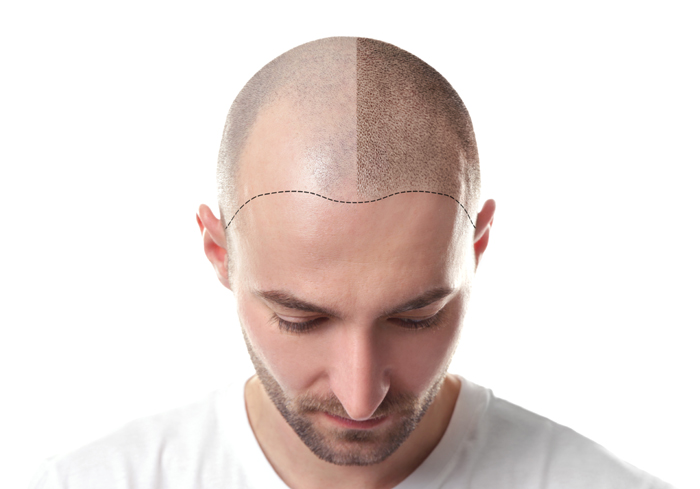What is hair transplantation?
Hair transplantation is a surgical procedure that involves moving hair follicles from one part of the head to another where the hair is thinning or receding.
The part of the head from where hair follicles are taken is called the donor site and is mostly located on the sides and behind the head where the growth is usually stable. Hair in this region is the most resistant to hair loss, so it can grow back after being extracted.
The recipient site of a hair transplant is the region of the balding area that receives the hair follicle.
Because the donor and the recipient are the same people, there is no risk of rejection.

Advanced Treatment
Long Lasting
Enhanced Appearance
Natural Way Of Treatment
Reasons for hair loss:
- Stress
- Hormonal imbalance
- Improper hair care routine
- Aging
- Hereditary problems
- Dust or pollution
- Lack of nutritional diet
What to Avoid after Hair Transplantation:
1. Scrubbing head or taking shower: You are advised not to touch, scrub, or shower to avoid any form of pressure on the newly implanted shaft to avoid damage.
2. Faulty sleeping positions: “Sleeping on your back and upright” is preferred and mostly advised sleeping position. Do not sleep face down as this might damage your transplantation.
3. Lifting heavy objects: Vigorous physical activity should be avoided for at least one week after surgery, do not bend or engage in lifting at least for 48 hours or as advised by professionals to avoid bleeding or swelling.
4. Skipping your follow-ups: Regular follow-ups with your doctors are very important to track hair growth, skipping appointments may delay the result.
5. Dying your hair: Hair dye contains harmful chemicals such as bleaching agents or peroxides. Unusual chemicals in the dye may increase swelling and destroy the implanted hair shaft.
6. Not keeping yourself hydrated: After a transplant procedure, not drinking enough water results in improper nutrition transport to hair follicles embedded within the shaft.
7. Alcohol consumption: Consuming alcohol right after the hair transplant surgery could significantly tarnish the effect of the surgery, especially for the FUE hair transplant technique. Consuming alcohol right after the procedure decreases the survival chances of new hair follicles and complicates the recovery process to some extent.
There are two techniques used to obtain the follicles:
Follicular unit transplantation (FUT): It is a hair transplantation technique that involves harvesting a thin strip of healthy hair-bearing skin and transplanting it to an area of hair loss.
Follicular unit extraction (FUE): This technique involves taking individual hair follicles from the donor area using a micro punch tool and implanting them in the receiver area.
Generally, a hair transplant is permanent and will last for your entire life.



